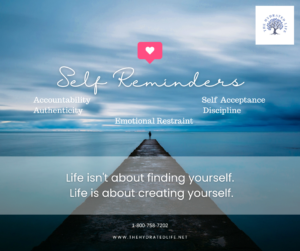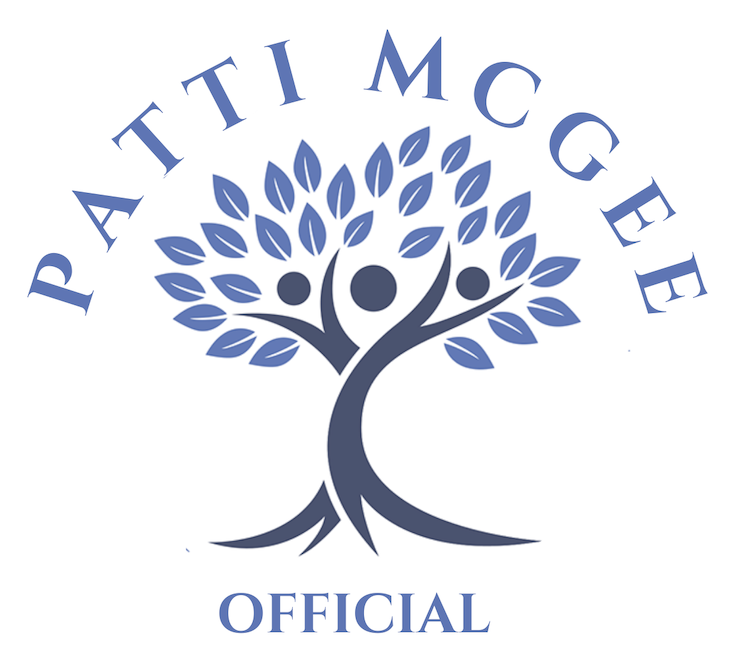 Accountability is a term often thrown around in professional settings, but its implications run much deeper than just meeting deadlines or fulfilling responsibilities. True accountability encompasses a range of personal virtues that are essential for a fulfilling and balanced life. These virtues include self-acceptance, self-authenticity, discipline, showing up for yourself, making thoughtful decisions, and emotional restraint. In this blog, we’ll delve into each of these pillars of accountability, offering actionable advice on how to cultivate them in your own life.
Accountability is a term often thrown around in professional settings, but its implications run much deeper than just meeting deadlines or fulfilling responsibilities. True accountability encompasses a range of personal virtues that are essential for a fulfilling and balanced life. These virtues include self-acceptance, self-authenticity, discipline, showing up for yourself, making thoughtful decisions, and emotional restraint. In this blog, we’ll delve into each of these pillars of accountability, offering actionable advice on how to cultivate them in your own life.
Self-Acceptance: The Foundation of Accountability
The first pillar of accountability is self-acceptance. This is the ability to accept yourself fully, warts and all. It’s easy to be accountable to others when you’re accountable to yourself first. Self-acceptance doesn’t mean ignoring your flaws or avoiding self-improvement; rather, it means acknowledging your imperfections while striving to be better.
To cultivate self-acceptance, start by being honest with yourself. Assess your strengths and weaknesses without judgment. Once you have a clear picture, you can set realistic goals for improvement. Remember, self-acceptance is not a one-time event but a lifelong process.
Self-Authenticity: Being True to Yourself
The second pillar, self-authenticity, is closely related to self-acceptance. Authenticity involves being true to yourself, your values, and your beliefs, even when it’s inconvenient or uncomfortable. It’s about not conforming to societal expectations at the expense of your true self.
To be more authentic, listen to your inner voice. What are your passions, interests, and values? Once you identify them, make decisions that align with your authentic self. This will not only make you more accountable to yourself but also enrich your life with purpose and meaning.
Discipline: The Backbone of Accountability
Discipline is often considered the backbone of accountability. It’s what enables you to stick to your commitments, whether it’s a workout routine, a work project, or a personal goal. Discipline is not about punishment or deprivation; it’s about setting boundaries for yourself and sticking to them.
To build discipline, start small. Choose one area in your life that needs improvement and focus on it. Create a routine or a set of rules to follow. As you succeed in small tasks, your confidence will grow, making it easier to tackle bigger challenges.
Showing Up for Yourself: The Ultimate Act of Accountability
Accountability is not just about fulfilling obligations to others; it’s also about showing up for yourself. This means prioritizing your own needs and taking time to recharge. It means setting aside time for self-care, hobbies, and activities that bring you joy.
To show up for yourself, schedule “me time” just as you would any other important appointment. Use this time to engage in activities that nourish your soul and rejuvenate your spirit. When you show up for yourself, you’re better equipped to show up for others.
Making Thoughtful Decisions: The Intellectual Aspect of Accountability
Another crucial pillar of accountability is the ability to make thoughtful decisions about yourself. This involves weighing the pros and cons, considering the long-term implications, and making choices that align with your goals and values.
To make more thoughtful decisions, practice mindfulness. Be present in the moment and consider the impact of your choices. Consult your inner compass—your values and beliefs—to guide you in decision-making.
Emotional Restraint: Gaining Control Over Your Feelings
The final pillar of accountability is emotional restraint. While emotions are a natural and essential part of the human experience, they can be unpredictable and, at times, irrational. Learning to control your emotions rather than letting them control you is a vital aspect of accountability.
To gain emotional restraint, practice techniques like deep breathing, meditation, or even talking to a trusted friend or family member. The goal is not to suppress your emotions but to manage them effectively.
Conclusion: The Synergy of Accountability’s Pillars
In summary, the pillars of accountability—self-acceptance, self-authenticity, discipline, showing up for yourself, making thoughtful decisions, and emotional restraint—are interconnected and mutually reinforcing. Cultivating these virtues will not only make you more accountable to yourself but also improve your relationships and overall well-being. So, take the first step today in strengthening your pillars of accountability and pave the way for a more fulfilling life. For more information on living a more fulfilling life visit thehydratedlife.net. Follow thehydratedlife.net on Facebook.
